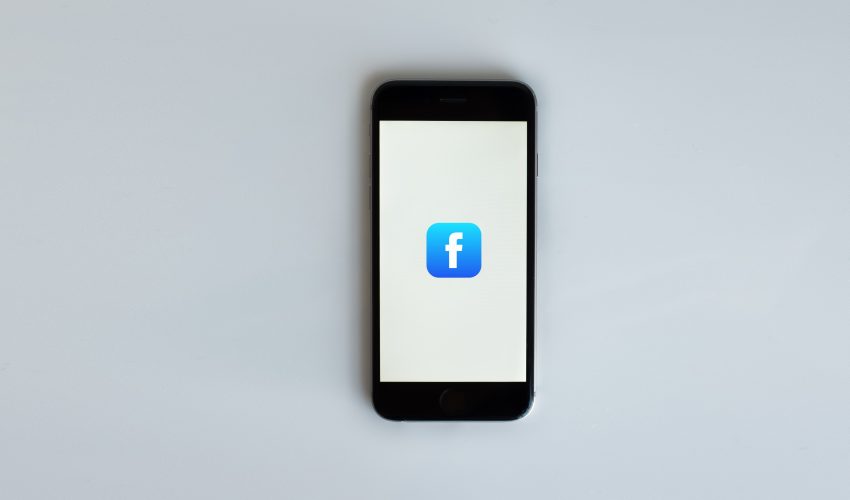FOR IMMEDIATE RELEASE
December 9, 2020
ATTORNEY GENERAL SEAN D. REYES JOINS MULTISTATE LAWSUIT SEEKING TO END FACEBOOK’S ILLEGAL MONOPOLY
Bipartisan Coalition of 48 Attorneys General Charge Facebook on Allegations of Anticompetitive Conduct, Thwarted Competition, Reduced Consumer Privacy for Profits
SALT LAKE CITY– Utah Attorney General Sean D. Reyes today joined a bipartisan coalition of 48 attorneys general in filing a lawsuit against Facebook Inc., alleging that the company is illegally stifling competition to protect its monopoly power. Read the lawsuit here. The lawsuit alleges that, over the last decade, the social networking giant illegally acquired competitors in a predatory manner and cut services to smaller threats, depriving users from the benefits of competition and reducing privacy protections and services along the way — all in an effort to boost its bottom line through increased advertising revenue.
“Facebook systematically plotted to change the competitive market of social media, and its actions are a blatant profit and power grab,” said Deputy Attorney General David Sonnenreich. “When Facebook entered the social media market, it was highly competitive and consumer privacy was paramount. Today Facebook dominates the social media market because it bought or crushed the competition, and consumer privacy is no longer prioritized by Facebook. This lawsuit seeks to restore competition to the market for social media. Consumers win when companies compete; that is true even when services appear to be free but consumers are “paying” with their data.”
Since 2004, Facebook has operated as a personal social networking service that facilitates sharing content online without charging users a monetary fee, but, instead, provides these services in exchange for a user’s time, attention, and personal data. Facebook then monetizes its business by selling advertising to firms that attach immense value to the user engagement and highly targeted advertising that Facebook can deliver due to the vast trove of data it collects on users, their friends, and their interests.
In an effort to maintain its market dominance in social networking, Facebook employs a variety of methods to impede competing services and — as Chairman, Chief Executive Officer, and controlling shareholder Mark Zuckerberg has stated — to “build a competitive moat” around the company. The two most utilized strategies have been to acquire smaller rivals and potential rivals before they could threaten Facebook’s dominance and to suffocate and squash third-party developers that Facebook invited to utilize its platform — allowing Facebook to maintain its monopoly over the social networking market and make billions from advertising. As one market participant noted, if an application (app) encroached on Facebook’s turf or didn’t consider selling, Zuckerberg would go into “destroy mode,” subjecting small businesses to the “wrath of Mark.”
Reduced Privacy and Fewer Options
Facebook’s unlawful monopoly gives it broad discretion to set the terms for how its users’ private information is collected and used to further its business interests. When Facebook cuts off integration to third-party developers, users cannot easily move their own information — such as their lists of friends — to other social networking services. This decision forces users to either stay put or start their online lives from scratch, if they want to try an alternative.
Because Facebook users have nowhere else to go, the company is now able to make decisions about how to curate content on the platform and use the personal information it collects from users to further its business interests, even if those choices conflict with the interests and preferences of Facebook users.
Acquisition of Competitive Threats
The harm to consumers over the last decade comes as a direct result of Facebook’s acquisition of smaller firms that pose competitive threats. Facebook employs unique data-gathering tools to monitor new apps all in an effort to see what is gaining traction with users. That data helps Facebook select acquisition targets that pose the greatest threats to Facebook’s dominance. Once selected, Facebook offers the heads of these companies vast amounts of money — that greatly inflate the values of the apps — all in hopes of avoiding any competition for Facebook in the future.
When it came to startups, Facebook has observed, that if these companies were not inclined to sell, “they’d have to consider it” if Facebook offered a “high enough price.”
The elimination of competitive alternatives means users have no alternative to Facebook, fueling its unfettered growth without competition and further entrenching its position. The two most obvious examples of this successful strategy were Instagram and WhatsApp — both which posed a unique and dire threat to Facebook’s monopoly.
Purchase of Instagram
Facebook saw Instagram as a direct threat quickly after the company launched. After initially trying to build its own version of Instagram that gained no traction, Facebook admitted in early 2012 that it was “very behind” Instagram and a better strategy would be “to consider paying a lot of money” for the photo-sharing app in an effort to “neutralize a potential competitor.”
A few months later, in April 2012, Facebook acquired Instagram for $1 billion, despite the company not having a single cent of revenue and valuing itself at only $500 million. Facebook offered Instagram’s owners double the valuation Instagram came up with even though Facebook had previously described the initial $500 million value as “crazy.”
Purchase of WhatsApp
The mobile messaging app WhatsApp also posed a unique threat to Facebook’s growth giving users the ability to send messages on their mobile devices both one-to-one and to groups. While Facebook focused on several emerging mobile messaging services, WhatsApp was viewed as the “category leader” with over 400 million active users worldwide in 2014, and the one that could potentially provide the greatest threat.
Facebook feared WhatsApp eroding its monopoly power, stating WhatsApp or similar products posed “the biggest competitive threat we face as a business.” Facebook was also concerned that WhatsApp could ultimately be bought by a competing behemoth that had previously shown interest in social networking — namely Google.
This led Facebook, in February 2014, to acquire WhatsApp for nearly $19 billion — wildly more than the extravagant price Facebook had recommended paying a few months earlier and the $100 million another competitor offered to buy the company two years earlier.
Cutting Competitors Off from Facebook Overnight
As laid out in today’s complaint, the coalition — led by New York Attorney General Letitia James — argues that Facebook targets competitors with a ‘buy or bury’ approach: if they refuse to be bought out, Facebook tries to squeeze every bit of oxygen out of the room for these companies. To facilitate this goal, Facebook has used an “open first–closed later” strategy to stop competitive threats, or deter them from competing, at the inception.
Facebook opened its platform to apps created by third-party developers in an effort to increase functionality on the site and, subsequently, increase the number of users on Facebook. Facebook also drove traffic to third-party sites by making it easier for users to sign in, so that Facebook could capture valuable data about its users’ off-Facebook activity and enhance its ability to target advertising.
Not only did Facebook benefit monetarily through the third-party developers’ revenue, but Facebook’s services were expanded, as Facebook did not have the capacity to create and develop all the useful social features offered through third-party developers.
After years of promoting open access to its platform, in 2011, Facebook began to rescind and block access to the site to apps that Facebook viewed as actual or potential competitive threats. Facebook understands that an abrupt termination of established access to the site can be devastating to an app — especially one still relatively new to the market. An app that suddenly loses access to Facebook is hurt not only because its users can no longer bring their friend list to the new app, but also because a sudden loss of functionality — which creates broken or buggy features — suggests to users that an app is unstable. In the past, some of these companies experienced almost overnight drop-off in user engagement and downloads, and their growth stalled.
Facebook’s response to competitors also serves as a warning to other apps that if they encroach on Facebook’s territory, Facebook will end their access to crucial integrations. Facebook’s actions also deter venture capitalists from investing in companies that Facebook might in the future see as competitors.
Advertising
As a consequence of Facebook’s expansive user base and the vast trove of data it collects from its users and users’ connections, Facebook is able to sell highly targeted advertising that firms greatly value.
The volume, velocity, and variety of Facebook’s user data give it an unprecedented, virtually 360-degree view of users and their contacts, interests, preferences, and activities. The more users Facebook can acquire and convince to spend additional time on its platforms, the more data Facebook can accumulate by surveilling the activities of its users and thereby increase its revenues through advertising — reaping the company billions every month.
Specific Violations
Facebook is specifically charged with violating Section 2 of the Sherman Act, in addition to multiple violations of Section 7 of the Clayton Act.
Remedies
The coalition asks the court to halt Facebook’s illegal, anticompetitive conduct and block the company from continuing this behavior in the future. Additionally, the coalition asks the court to restrain Facebook from making further acquisitions valued at or in excess of $10 million without advance notice to the state of New York and other plaintiff states. Finally, the court is asked to provide any additional relief it determines is appropriate, including the potential divestiture or restructuring of illegally acquired companies, or current Facebook assets or business lines.
The complaint was filed in the U.S. District Court for the District of Columbia.
Separately, but in coordination with the multistate coalition, the Federal Trade Commission (FTC) also today filed a complaint against Facebook in the U.S. District Court for the District of Columbia. The coalition wishes to thank the FTC for its close working relationship and collaboration during this investigation.
Read the lawsuit here.
###


